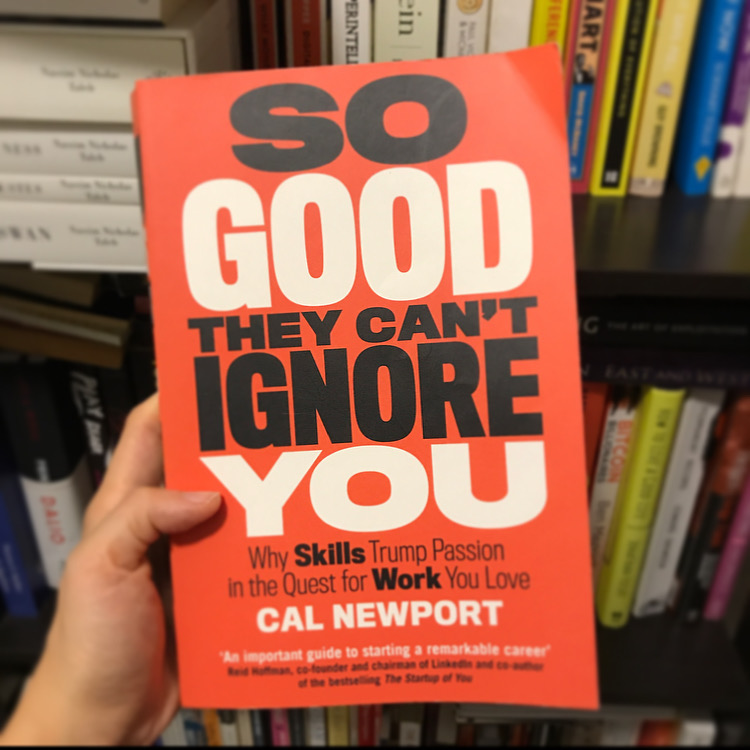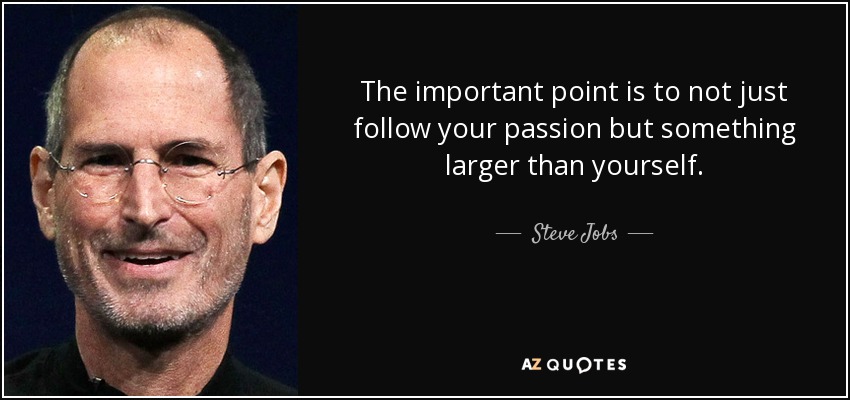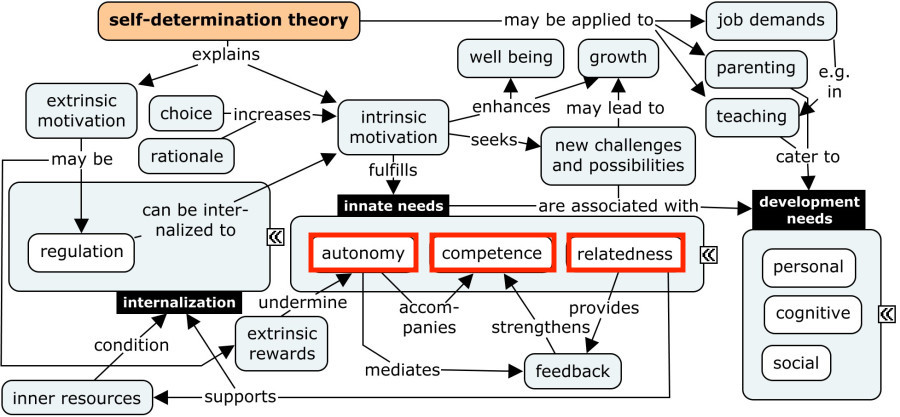
Summary of the Blinkist summary :
So Good They Can’t Ignore you does away with the “passion tray” and instead looks at more realistic and practical ways to succeed in and be satisfied with your career.
“The Passion Hypothesis” urges individuals to “do what they love”. This gist is this: find your passion first, then meaningful work will appear at your fingertips. So looking for the work you were “meant to do” or passionate about is likely to be a route to constant job-hopping and self-doubt. It often leads to unhappiness and dissatisfaction.
Review :
Read this if you don’t know how the hell do you find your passion? Here are my takeaways.

Highlights / Takeways / Quotes
Passion comes with time
You’re more likely to be satisfied with what you do when you’re experienced enough. So you’ve become good at it (expertise/mastery). When you’ve mastered something, it’s more likely that you’ll become passionate about it. This is backed by the self-determination theory (SDT).
SDT has identified 3 basic factors required to generate intrinsic motivation:
➊ Autonomy, feeling that you’ve control over your day
➋ Competence, feeling that you’re good at what you do
➌ Relatedness, feeling of connection you’ve to other people
To be autonomous and competent means to achieve mastery in your given field. To do that, you don’t need passion, only the willingness to work hard. Don’t do what you love, learn to love what you do – by acquiring autonomy, competence (mastery) and relatedness.
Craftsman Mindset
The craftsman mindset acknowledges that no matter what field you’re in, success is always about quality. Focus on the quality of the work you’re doing now, instead of always wondering if it’s your true calling. And to improve the quality, practice deliberately, get out of your comfort zone. and get ruthless feedback.
Adopt the craftsman mindset first and then the passion follows.
The craftman mindset focuses on what you can offer the world, the passion mindset focuses instead on what the world can offer you
So Good They Can’t Ignore you by Cal Newport
When you focus only on what your work offers you, it makes you hyperaware of what you don’t like about it, leading to chronic unhappiness.
So Good They Can’t Ignore you by Cal Newport
No one owes you a great career, you need to earn it – and the process won’t be easy.
So Good They Can’t Ignore you by Cal Newport
Put aside the question of whether your job is your true passion, and instead turn your focus toward becoming so good they can’t ignre you. […] approach your work like a true performer.
So Good They Can’t Ignore you by Cal Newport
Career Capital
In a supply and demand employment market, you need equally rare and valuable skills if you want a rare and valuable job. Acquiring a large store of this capital through the craftsman mindset is the foundation of constructing the work you love.
The first task in building a deliberate practice strategy is to figure out what type of career capital market you are competing in. There’re two types.
➊ Winner-take-all market: only one type of capital that matters
➋ Auction market: more flexibility
Seek open gates – opportunities to build capital that are already open to you
So Good They Can’t Ignore you by Cal Newport
It helps to think about skill acquisition like a freight train: Getting it started requires a huge application of effort, but changing its track once it’s moving is easy.
So Good They Can’t Ignore you by Cal Newport
Control
Control is of the most universal traits that you can pursue with your career capital in the quest for a happier, more successfully and more meaningful life. However, acquiring control can be complicated.
Control Traps :
➊ Control that’s acquired without career capital is not sustainable
➋ Control generates resistance
To determine whether or not you have enough career capital to succeed with a pursuit, practice the law of financial viability – people’s willingness to pay. Money is a neutral indicator of value. By aiming to make money, you’re aiming to be valuable.
Giving people more control over what they do and how they do it increases their happiness, engagement, and sense of fulfilment.
So Good They Can’t Ignore you by Cal Newport
Acquiring more control in your working life is something that benefits you but likely has no direct beneift to your employer.
So Good They Can’t Ignore you by Cal Newport
The point at what you acquired enough career capital to get meaningful control over your working life is exactly the point when you’ve become valuable enough to your current employer that they will try to prevent you from making the change.
So Good They Can’t Ignore you by Cal Newport
I follow a rule with my life that if something is scary, do it. – Derek Sivers
So Good They Can’t Ignore you by Cal Newport
The Law of Financial Viablity
So Good They Can’t Ignore you by Cal Newport
When deciding whether to follow an appealing pursuit that will introduce more control into your work life, seek evidence of whether people are willing to pay for it. If you find this evidence, continue. If not, move on.
Career Mission
To have a mission is to have a unifying focus for your career.
So Good They Can’t Ignore you by Cal Newport
Having passion for your work is vital, […] but it’s a fool’s errand to try to figure out in advance what work will lead to this passion.
So Good They Can’t Ignore you by Cal Newport
Missions are a powerful trait to introduce into your working life, but they’re also fickle, requiring careful coaxing to make them a reality.
So Good They Can’t Ignore you by Cal Newport
Just because you want to organise your work around a mission doesn’t mean that you can easily make it happen. To do so, you must first get to the cutting edge – the only place where these missions become visible.
A good career mission is similar to a scientific breakthrough – it’s an innocation waiting to be discovered in the adjacent possible of your field.
So Good They Can’t Ignore you by Cal Newport
The adjacent possible is the space that contains all the discoveries waiting to be made next: the possible combinations of exiting ideas that hover just beyond the current cutting edge of science and technology.
The strange and beautiful truth about the adjacent possible is that its boundaries grow as you explore those boundaries. Each new combination ushers new combinations into the adjacent possible.
Where Good Ideas Come From: The Natural History of Innovation, Steven Johnson
Think of it as a house that magically expands with each door you open. You begin in a room with four doors, each leading into a new room that you haven’t visited yet. Those four doors are the adjacent possible.
But once you open one of those doors and stroll into that room, three new doors appear, each leading to a brand-new room that you couldn’t have reached from your original starting point. Keep opening new doors and eventually, you’ll have built a palace.
To get to the cutting edge, choose only a few critical areas to develop skills – specialisation / expertise. Once you identify a general mission, pursue small and achievable projects – little bets – to make headway step by step, rather than trying to fulfil it in one grand fell swoop. Leverage the small but significant wins to advance, and when you inevitably fail on occasion, learn from the failures and improve.
.
Blinkist | Amazon | Good Reads
◃ Back to Book List
